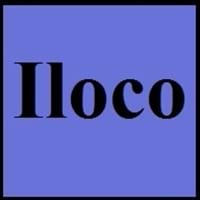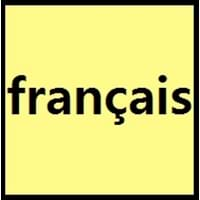Countries
Philippines
Belgium, Benin, Burkina Faso, Burundi, Cameroon, Canada, Central African Republic, Chad, Comoros, Congo, Cote d'Ivoire, Djibouti, Equatorial Guinea, France, Gabon, Guernesey, Guinea, Haiti, Italy, Jersey, Luxembourg, Madagascar, Mali, Mauritius, Monaco, Niger, Rwanda, Senegal, Seychelles, Switzerland, Togo, Vanuatu
National Language
Philippines
France
Second Language
Not spoken in any of the countries
Africa, Canada
Speaking Continents
Asia
Africa, Australia, Europe, North America, Oceania, Pacific, South America
Minority Language
Not spoken in any of the countries
Brazil, Cambodia, United States of America, Vietnam
Regulated By
Commission on the Filipino Language
Académie française (French Academy), Office québécois de la langue française
Interesting Facts
- Ilocano was originally written with Baybayin syllabary, then gradually it was replaced by Latin alphabet.
- Northwest Luzon is the original Ilocano homeland.
- French is the only language, with English, that is taught in every country of the world.
- French is the top language in Culinary Scene.
Similar To
Tagalog, Indonesian and Malaysian Languages
Italian Language
Derived From
Not Available
Latin
Alphabets in
Ilocano-Alphabets.jpg#200
French-Alphabets.jpg#200
Scripts
Ilokano Braille, Latin
Latin
Writing Direction
Not Available
Left-To-Right, Horizontal
Time Taken to Learn
Not Available
Thank You
Agyamanak
Merci
How Are You?
Kumusta?
Comment allez-vous?
Good Night
Naimbag a rabii
bonne Nuit
Good Evening
Naimbag a sardam
bonsoir
Good Afternoon
Naimbag a malem
bon Après-Midi
Good Morning
Naimbag a bigat
Bonjour
Please
Not available
S'il vous plaît
I Love You
Ayayatenka
Je t'aime
Excuse Me
Maawan-dayawen
Excuse Moi
Dialect 1
Balangao
Quebec French
Where They Speak
Philippines
New Brunswick, New England, Ontario, Quebec, Western Canada
Dialect 2
Bontoc
African French
Where They Speak
Philippines
Africa
How Many People Speak
Not Available
Dialect 3
Not present
Swiss French
Where They Speak
Not present
Northeast France, Switzerland
How Many People Speak
Not Available
Second Language Speakers
Not Available
Native Name
ilokano
français
Alternative Names
Ilokano, Iloko
Français
French Name
ilocano
français
German Name
Ilokano-Sprache
Französisch
Pronunciation
Not Available
[fʁɑ̃sɛ]
Ethnicity
Ilocano people
Not Available
Origin
18th Century
9th Century
Language Family
Austronesian Family
Indo-European Family
Subgroup
Not Available
Romance
Branch
Not Available
Not Available
Early Forms
No early forms
Old French, Middle French and French
Standard Forms
Modern Ilocano
Standard French
Signed Forms
Not Available
le Français Signé (Signed French, France)
Scope
Individual
Individual
ISO 639 1
No data available
fr
ISO 639 6
Not Available
fras
Glottocode
ilok1237
stan1290
Linguasphere
31-CBA-a
51-AAA-i
Language Type
Living
Living
Language Linguistic Typology
Not Available
Subject-Verb-Object
Language Morphological Typology
Not Available
Fusional, Synthetic
All Ilocano and French Dialects
Most languages have dialects where each dialect differ from other dialect with respect to grammar and vocabulary. Here you will get to know all Ilocano and French dialects. Various dialects of Ilocano and French language differ in their pronunciations and words. Dialects of Ilocano are spoken in different Ilocano Speaking Countries whereas French Dialects are spoken in different French speaking countries. Also the number of people speaking Ilocano vs French Dialects varies from few thousands to many millions. Some of the Ilocano dialects include: Balangao, Bontoc. French dialects include: Quebec French , African French. Also learn about dialects in South American Languages and North American Languages.
Ilocano and French Speaking population
Ilocano and French speaking population is one of the factors based on which Ilocano and French languages can be compared. The total count of Ilocano and French Speaking population in percentage is also given. The percentage of people speaking Ilocano language is 0.14 % whereas the percentage of people speaking French language is 1.12 %. When we compare the speaking population of any two languages we get to know which of two languages is more popular. Find more details about how many people speak Ilocano and French on Ilocano vs French where you will get native speakers, speaking population in percentage and native names.
Ilocano and French Language Codes
Ilocano and French language codes are used in those applications where using language names are tedious. Ilocano and French Language Codes include all the international language codes, glottocodes and linguasphere.





